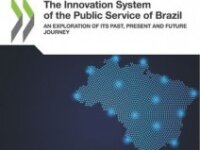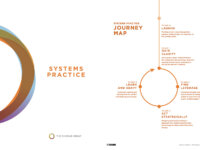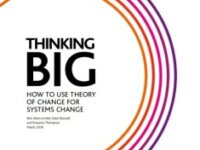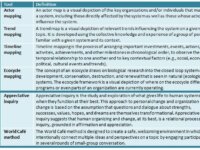Wales is in the midst of a major education reform process. As we know, good education policy is not about perfection on the page, it’s about what happens in the classroom. This is why Wales needed to think about not only effective policy development but also effective policy implementation. What conditions make for effective policy implementation? Our colleagues in the OECD Education Directorate’s Implementing Education Policy team collaborated with key actors in the Welsh education...
Global: Innovative Capacity
English Today the OECD reports The Innovation System of the Public Service of Brazil: An exploration of its past, present and future journey and Innovation skills and leadership in Brazil’s public sector were launched by Marcos Bonturi, Director of Public Governance, at the Brazilian public sector Innovation Week. The Innovation System of the Public Service of Brazil is the second OECD deep-study of a national government’s public sector innovation system. It provides insights into how...
Publication
The Innovation System of the Public Service of Brazil: An exploration of its past, present and…

Governments must innovate if they are to be effective. This report explores the past, present and possible future journey of the innovation system of the Brazilian public service. It outlines a systemic approach for innovation to mitigate existing biases, and identifies a range of options for the development of a consistent, deliberate and reliable approach to innovation in the public service of Brazil.
The GovTech Lab is a public sector team focused on encouraging the creation and use of innovative solutions for the government. The GovTech Lab helps the public sector identify challenges that can be solved with emerging technologies, engages startups and SMEs, creating innovative solutions and accelerating startups in #GovTech and #TechForGood space.
For better or worse, the minutiae of government operations can easily fly under the radar of the average person. Not so, in the domain of education. The success or failure of an education system hits close to home, as most people have been through it. If they later come to care for learners who go to school, any faraway memories of textbooks and schoolyard games transmute into something more urgent. The school becomes a locus...
From the 11 to 13 of March, OPSI travelled to Israel to interview high-level leaders from across the public sector to understand the Israeli context for innovation better. “This trip was our first foray into this fascinating place, a short scan of how the public service operates. Israel has such diverse communities. Just how vastly different “innovation” looks to each community is the thing that really stood out to me’, said OPSI Analyst Kevin Richman....
This guest post is written by Leeanne Douglas from BizLab within the Australian Government. We have learned lots of lessons running the first human centred design academy in the Australian Government. It has been a bit of trial and error for us, so we thought we would share a few things that might help others in the same position. BizLab, an innovation hub within Australia’s Department of Industry, Innovation and Science, was established in 2016....
This resource walks you through a systems practice, and describes process phases (Launch, Gain Clarity, Find Leverage, Act Strategically, and Learn and Adapt) and methods for guiding the practice.
This resource has been developed in collaboration with teams across The Omidyar Group. This workbook aims to fill the gap between the promise of a systems approach for making social change and putting it into practice. It was created alongside curriculum as part of a paid course.
For each method,…
This report identifies five common pitfalls that organisations fall into when using theory of change, and walks through five rules of thumb that will help organisations to use the approach to tackle complex problems. The report includes case studies demonstrating these pitfalls and rules of thumb in practice.
A blog series introducing and sharing guidance for using different tools to support systems thinking and practice, including actor mapping, trend mapping, timeline mapping, ecocycle mapping, appreciative inquiry, and world cafe. Each offers a downloadable guide in exchange for an email address.









